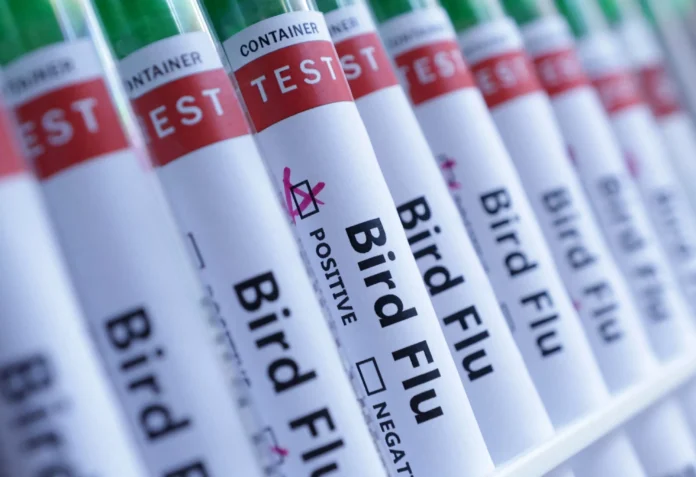Surging Cases of Bird Flu Among Mammals: A Stark Warning for Global Leaders to Act
In recent years, we have seen the world struggle with the devastating effects of the COVID-19 pandemic. However, it seems that the threat of future pandemics is far from over. A new report has revealed that bird flu, a virus that primarily affects birds, is now spreading among mammals such as U.S. cattle. This alarming development serves as a stark warning that the world is not prepared to fend off future pandemics, and it is imperative for global leaders to take action now.
According to the report released by the Center for Infectious Disease Research and Policy (CIDRAP) at the University of Minnesota, the bird flu virus has been detected in multiple mammalian species in various parts of the world in recent years. This includes cases of bird flu in U.S. cattle, which were first reported in the Midwest in 2020. The virus has also been found in pigs, minks, and even domestic cats. These findings raise serious concerns about the potential for the virus to jump from animals to humans and cause another pandemic.
The report warns that this is not a new phenomenon, as bird flu has been infecting mammals for decades. However, the recent surge in cases is a cause for concern as it indicates that the virus is becoming more adept at infecting a wider range of animals. This could potentially increase its chances of mutating and adapting to infect humans, which could have devastating consequences. The report also highlights the lack of preparedness and capacity to respond to such outbreaks.
One of the main reasons for the spread of bird flu among mammals is the increasing overlap between humans, animals, and their habitats. The expansion of agriculture and urbanization has led to a closer proximity between humans and animals, making it easier for viruses to jump between species. Additionally, the global trade and movement of animals have also contributed to the spread of the virus. This highlights the need for stricter regulations and monitoring of animal trade to prevent the spread of infectious diseases.
The report also sheds light on the inadequate surveillance systems in place to detect and monitor the spread of bird flu among mammals. The lack of timely and accurate data makes it difficult to assess the true extent of the problem and take appropriate action. This is a significant gap that needs to be addressed by governments and international organizations to prevent another pandemic from taking hold.
The CIDRAP report stresses the urgent need for global leaders to take immediate action to prevent the spread of bird flu among mammals and other potential zoonotic diseases. It calls for increased funding for research and development of effective vaccines and treatments, as well as strengthening of public health systems. The report also emphasizes the importance of collaboration and communication between countries to share information and resources in the event of an outbreak.
This is a wake-up call for global leaders to prioritize and invest in pandemic preparedness and response. The COVID-19 pandemic has shown us that the cost of inaction is far greater than the cost of prevention. It is crucial to learn from our past mistakes and take proactive measures to prevent future pandemics from wreaking havoc on our world.
We have the knowledge and technology to tackle these challenges, but we need the political will and commitment to make it a priority. We cannot afford to be caught off guard and unprepared again. As the report states, “the world’s preparedness can only be as strong as its weakest link”. It is time for all countries to come together and work towards building a stronger, more resilient global health system.
In conclusion, the recent surge in bird flu cases among mammals is a stark warning that the world is not ready to fend off future pandemics. The report released by CIDRAP highlights the urgent need for global leaders to take action and invest in pandemic preparedness. It is time to learn from our mistakes and take proactive measures to prevent another crisis. Let us hope that this report serves as a wake-up call for our leaders to prioritize and act before it’s too late.


